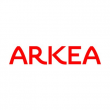JSE overhauls derivatives and fixed income systems
South Africa’s Johannesburg Stock Exchange has begun moving its derivatives and fixed income markets onto Millennium Exchange, the trading platform it bought from the London Stock Exchange when it moved its equities market in 2012.
The exchange made the move as part of a larger plan to get all its asset classes onto the same trading platform. Simultaneously, the JSE is also moving all its clearing activities onto a single platform, provided by capital markets technology company Cinnober.
The JSE was already using surveillance tools provided by MillenniumIT, which is a Sri Lanka-based subsidiary of the LSE. The exchange-wide project to move all asset-classes onto MillenniumIT’s technology platform and surveillance solution will take a phased approach. Phase one will migrate JSE’s equity derivatives and currency derivatives markets onto MillenniumIT’s solution, with the integration of the remaining markets in subsequent phases.
“As the largest exchange on the African continent, the efficiencies, scalability and risk management gains we achieved in our equities markets when we moved our technology infrastructure onto MillenniumIT’s platform in 2012 were outstanding,” said Leanne Parsons, director of trading and market services at the JSE. “Our member firms benefited from executing trades up to 400 times faster than previously. Since then, MillenniumIT has helped us to further improve our latency with a co-location facility. It made absolute sense for us to extend these benefits to markets across our entire exchange with a best-of-breed approach from MillenniumIT.”
The JSE is not new to working with the LSE. Apart from the trading technology, the two exchanges also collaborate on the JSE’s index business, which is called FTSE Russell. The JSE is the biggest exchange in Africa, with 400 companies listed and a market capitalisation of around £480 billion in 2013. It offers equities, financial, interest rate and commodity derivatives and bonds and FX products.












































